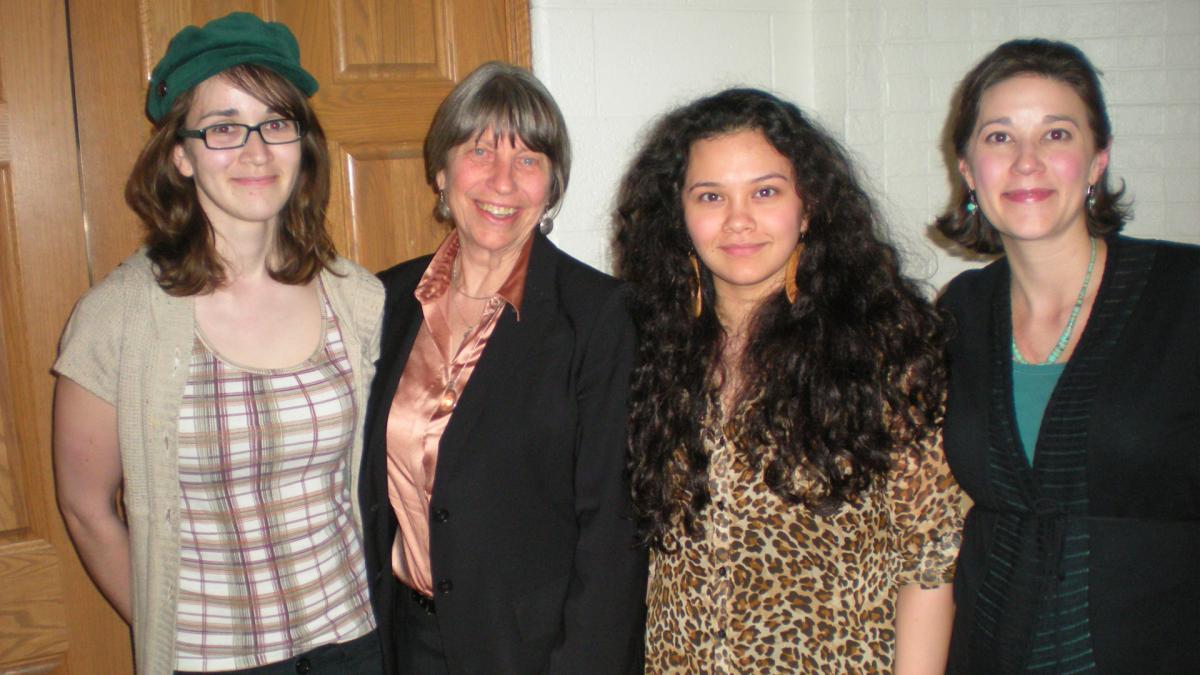Gender Studies
Intense study of a complex construct.
The Gender Studies minor provides students with the opportunity to learn about the impacts of and variation in gender through a multidisciplinary encounter. Although this minor builds on the university’s special history of empowering women, this is not a women’s studies minor; this minor offers an engendered program of learning and promotes a socially responsible and aware approach to all gendered social interaction through academics and service learning. Though an appreciation of gender differences, roles and historic interactions in a variety of contexts, students enhance their ability to function in the workplace and at home.The Gender Studies minor provides students with the opportunity to learn about the impacts of and variation in gender through a multidisciplinary encounter. Although this minor builds on the university’s special history of empowering women, this is not a women’s studies minor; this minor offers an engendered program of learning and promotes a socially responsible and aware approach to all gendered social interaction through academics and service learning. Though an appreciation of gender differences, roles and historic interactions in a variety of contexts, students enhance their ability to function in the workplace and at home.
Fast Facts
- This minor approaches gender from an interdisciplinary viewpoint, focusing on issues such as the negotiation of power, creation of personal identities, and social reproduction across time and space
- The minor draws on faculty from multiple disciplines, allowing you to learn from a diverse faculty who are engaged in their own research
- The field of gender studies continues to gain popularity across university campuses because those with a better understanding of the complexities of gender are well-rounded citizens and more marketable.
- Students work closely with faculty, which ensures individualized attention
- Enjoy the camaraderie of a small cohort of like-minded people
- Put into practice research skills in an applied manner with the chance to conduct original research and attend regional and national conferences.
- Individuals with such a minor find employment in a variety of occupations within governmental and non-governmental organizations, the private sector and the helping professions.

Dr. Ruth Jolie (far right) and two students meet with renowned gender scholar Dr. Louise Lamphere (second from left). Dr. Lamphere is most well known for her work on feminist anthropology and issues of gender equity. As a former president for the American Anthropological Association, anthropology’s largest professional association, she pushed for more feminist research to be conducted by anthropologists. Because of her influence, feminist anthropology is a lively and important part of anthropology today.
- ANTH 125: Introduction to Gender Studies (Three credits)
- PSYC 265: Psychology of Gender (Three credits)
- ANTH 346: Anthropology of Gender (Three credits)
- ANTH 349: Anthropology of the Family (Three credits)
- CRJS 335: Seminar: Women in Crime (Three credits)
- ENG 374: Women and Literature (Three credits)
- FREN 135: Topics in French Literature: Gender (Three credits)
- FREN 305: Seminar: Gender (Three credits)
- HIS 280: Gendering World History I (Three credits)
- HIS 281: Gendering World History II (Three credits)
- HIS 283: Sex in Modern History (Three credits)
- POLI 363: Politics and Gender (Three credits)
- PSYC 234: Relationship Psychology (Three credits)
- PUBH 300: Sexual and Reproductive Health (Three credits)
- RLST 255: Religious Perspectives on Human Relationships (Three credits)
- RLST 270: Women in Scripture (Three credits)
- SOC 204: Cultural Differences (Three credits)
- SPAN 305: Women in Hispanic Civilization (Three credits)
Choose any five courses from the following list:
William Meyer, Ph.D.
Program Director, Gender Studies
Office: Zurn 66A
